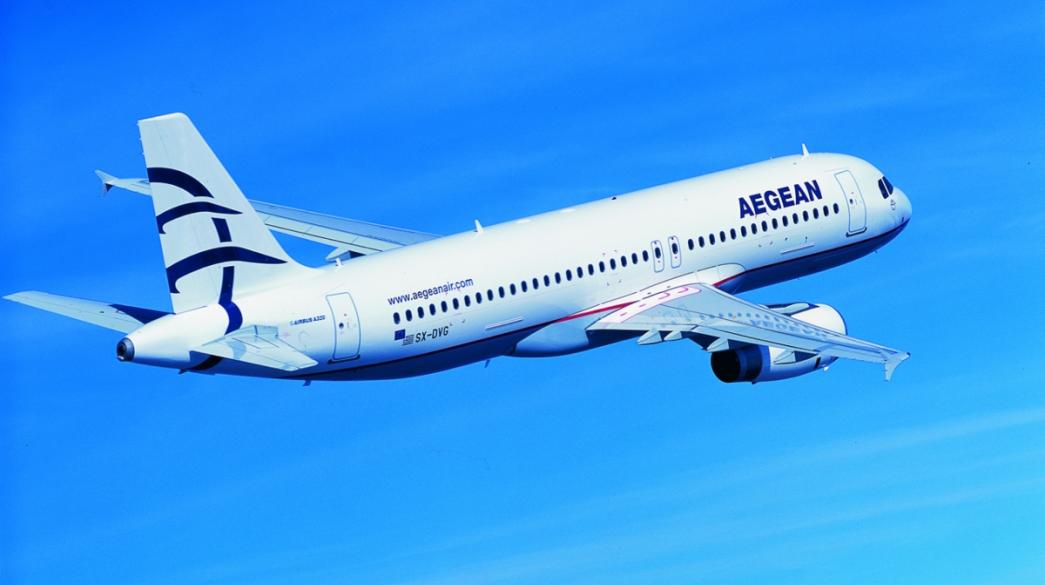In an achievement that would be the envy of many European airlines, including Lufthansa, Aegean, the country's dominant airline, has avoided severe problems thanks to strong support from the state, which, however, was offered in such a discreet way that the Greek group avoided the bitter experience of needing EU approval for a rescue plan with state funds.
From the outset of the pandemic, which has plagued international aviation, many have questioned whether Aegean, like many European airlines, would be forced to seek aid from the government in exchange for a stake in the company going to the state and control of its management, with a painful restructuring plan being imposed by the Directorate-General for Competition, as was the case with Lufthansa.
From the beginning, the president and major shareholder of Aegean, Eftychis Vasilakis, had ruled out, speaking to analysts, the scenario of the group’s partial nationalization. Developments seem to justify it, as Aegean has been saved thanks to state support, but this has been done thanks to general measures provided to all companies, without having to embark on the adventure of a rescue program specifically for the airline group.
According to yesterday's announcements of first half results and what Vasilakis and the CEO, Dimitris Gerogiannis, later told analysts, Aegean’s finances are seen facing unprecedented challenges. First half losses exceeded 200 million euros, while in the third quarter of the year, which is traditionally the group's best, management estimates that losses will amount to 25-30 million euros, as it will have served fewer of 2 million passengers. In total, in the 9 months the group will have used up liquidity of 160 million euros.
Nevertheless, Aegean is still standing, not only because it closed 2019 with a liquidity of 505 million euros and quickly secured working capital of 120 million euros from banks, but also because it made the most of state support measures on hand.
Liquidity: The group joined Business Guarantee Fund and submitted loan applications totaling 150 million euros to the four systemic banks. This way, it secured liquidity of 150 million euros, with an 80 percent guarantee from the state for five years. The signing of the loan agreements is expected to take place in the near future. The 150 million euros correspond to 11 percent of turnover in 2019 and the management of the group implies that this is a relatively small amount, but it is an amount that covers almost completely all the liquidity used up in the 9-month period.
Employment: Aegean has taken full advantage of the flexibility offered by government programs (SYNERGASIA) to suspend labor contracts and part-time staff with a state subsidy of part of the salary. As the company notes, "during the first half of the year, the horizontal measures announced by the Greek government were used, mainly in terms of the possibilities adopted by the state regarding the support of employment. During the period when the group significantly reduced its activity, approximately 70 percent of its staff was suspended. Gradually, from June until today, the suspension of employment contracts was replaced by the use of the part-time program "SYNERGASIA” for most of the staff". Eftychis Vasilakis predicted yesterday that the labor support program will be extended to 2021 and the group will continue to use it.
Breathing space
In addition, Aegean has entered into a major agreement with Airbus to acquire 46 new aircraft but is avoiding a serious financial burden from the delivery of the aircraft this year and 2021.
As announced yesterday, "from December 2019 until the end of the first half of 2020, 5 new aircraft of the Airbus A320 neo family were received. During the second half of 2020, the group is expected to receive three aircraft of the A320 neo family, while another aircraft is scheduled to be delivered in 2021. Deliveries of the remaining aircraft are postponed beyond 2022 ".
Turning point
The lines of defense set up by Aegean's management during the crisis, with the help of the state’s invisible hand, ensure that the group is saving time to make decisions in 2021 on whether it will extend flight operations on a permanent basis, which seems inevitable for all airlines in the post-Covid era.
Even more importantly, perhaps, is that the fact that its absolute dominance of the Greek market, which provides the group with a unique advantage in pricing its service, is not in doubt.
Lufthansa, for example, has been forced by the Commission to take steps to ensure the sustainable entry of competitors at Frankfurt and Munich airports, such as the allocation of 24 slots per day. On the contrary for Aegean, the sustainable entry of competitors is not foreseen in the visible future.
NONTAS CHALDOYPIS





